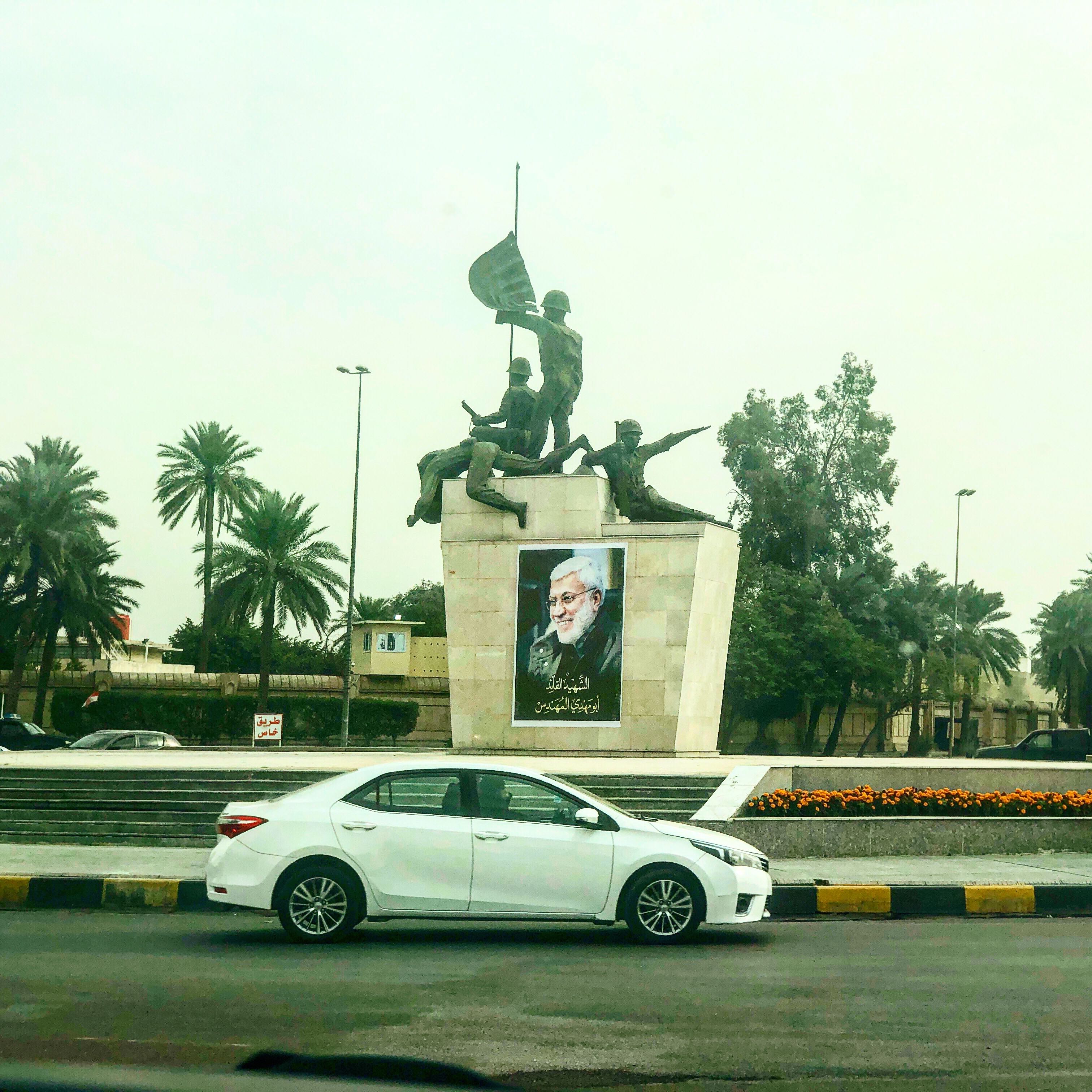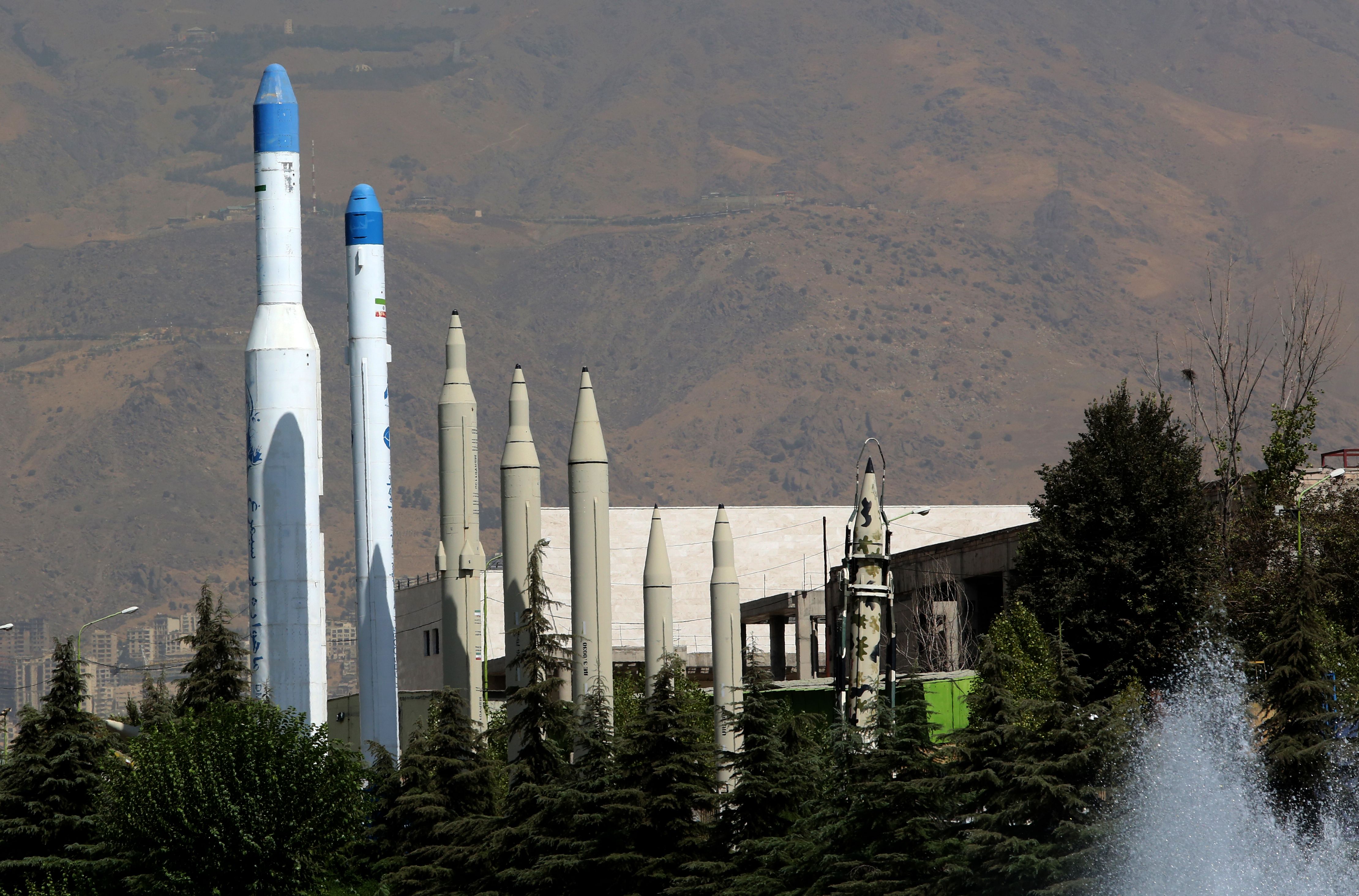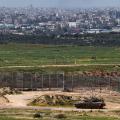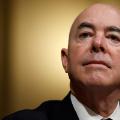Iran attacks bases housing US troops
By Meg Wagner, Ivana Kottasová, Mike Hayes, Veronica Rocha and Fernando Alfonso III, CNN
Just tuning in to the US-Iran faceoff? Here's everything you've missed
Just 24 hours ago, it seemed like the United States and Iran could be on the brink of war, after Tehran responded to the US killing of Iranian general Qasem Soleimani, the powerful commander of the elite Quds Force, by striking bases which housed US troops in Iraq.
It was the latest in a whirlwind two weeks of military action and ratcheted up tensions. The world watched with bated breath for how Washington would respond to the attacks, which did not kill or injure any US or Iraqi troops.
On Wednesday, US President Donald Trump said "Iran appears to be standing down, which is a good thing for all parties concerned and a very good thing for the world."
Here's what happened and where we're at now:
December 27: A rocket attack believed to be linked to a Shiite militia group, backed by Iran's Islamic Revolutionary Guard Corps, killed a US civilian contractor and wounded several US and Iraq military personnel on a base near Kirkuk, Iraq.
December 29: According to the Pentagon, US forces conducted airstrikes at five facilities in Iraq and Syria controlled by a Shiite military group known as Kataib Hezbollah -- the group that American officials blamed for the attack on a base near Kirkuk.
December 31: Pro-Iranian protesters, demonstrating against the American airstrikes, attacked the US Embassy in Baghdad, scaling walls and forcing the gates open.
January 3: Trump said he ordered a precision drone strike at the Baghdad airport to "terminate" Soleimani, a top Iranian commander who was plotting "imminent and sinister attacks on Americans diplomats and military personnel." Others were killed in the attack.
January 4: Iran vowed retaliation against the US, in response to the strike. Trump warned that if Iran targeted "any Americans or American assets," he he would sanction specific military strikes against Iranian cultural sites, which could amount to a war crime.
January 5: Soleimani's body arrived in his home country, where thousands mourned him. Meanwhile, Maj. Gen. Hossein Dehghan, the military adviser to Iran's Supreme Leader, told CNN in an exclusive interview that Tehran would retaliate directly against US "military sites."
January 6: The US Defense Department said there were no plans to withdraw from Iraq after a letter was mistakenly circulated from the military's Task Force Iraq suggesting just that. United Nations Secretary General warned that tensions were at their "highest level this century."
January 7: More than 50 people were reported killed, and at least 200 injured, in a stampede at Soleimani's funeral in his hometown of Kerman.
January 8: In the early hours of Wednesday morning local time, Iranian ballistic missiles struck two bases housing US forces in Iraq. Iran's Foreign Minister Javad Zarif said Tehran "concluded proportionate measures in self-defense." Trump didn't respond on Tuesday night US time, except to tweet that "all is well." In a statement later on Wednesday, he said the strikes appeared to be the extent of Iran's actions and pledged more US sanctions on Tehran, signalling a scaling down of tensions, at least for the moment.
What we're learning about where the missiles landed
From CNN's Mohammed Tawfeeq in Baghdad
In addition to the missiles that hit al-Asad airbase to Baghdad's west, missiles also struck multiple locations near Erbil.
Local security officials say the strikes targeted Harir Air Base, some 60 kilometers (37 miles) northeast of Erbil, and Gazna, a training camp for coalition forces just outside the Erbil airport. The camp was formerly a US base.
There's a poster of Abu Mahdi Al-Muhandis, who was killed alongside Soleimani, in the Green Zone
From CNN's Mohammed Tawfeeq in Baghdad

A large poster memorializing Abu Mahdi Al-Muhandis could be seen in Baghdad's Green Zone on Thursday. Muhandis, deputy leader of the Iraqi Popular Mobilization, an Iran-backed militia, was killed alongside Iranian general Qasem Soleimani in a US drone strike last week.
Iran-backed Shiite militia Asaib Ahl al-Haq has called on Iraq to retaliate for Muhandis' death. The media office of its leader, Qais al-Khazali, posted the following statement on Twitter on Wednesday:
The preliminary Iranian response to the assassination of the martyr leader Soleimani took place. Now is the time for the initial Iraqi response to the assassination of the martyr leader al-Muhandis.”
“The Iraqi response will not be less than the size of the Iranian response, and this is a promise,” Qais al-Khazali also said.
The Green Zone is an area of Iraq's capital city where the embassies for the US and several other western countries are located. It was initially carved out of central Baghdad by US-led forces after their invasion of Iraq in 2003 and is largely viewed as a safe location, despite frequently being the target of rocket attacks.
US increases scrutiny of travelers and cargo amid Iran tension
From CNN's Priscilla Alvarez and Geneva Sands
The US government has increased scrutiny of travelers and cargo bound for the United States by making a revision to an alert system used to notify officers of those who may need additional screening amid rising tensions with Iran, according to sources familiar with the change.
On Sunday, a flurry of social media posts surfaced with accounts of Iranian-Americans stuck at the US-Canada border in Blaine, Washington. The incident, which is now under review by the Department of Homeland Security's Office for Civil Rights and Civil Liberties, quickly gained national attention as immigration advocates accused CBP of detaining Iranian-Americans based on their Iranian descent. It's unclear when the agency made changes to an internal alerts system and whether that contributed to why individuals were pulled aside for additional questioning.
The Department of Homeland Security issued a security bulletin regarding Iran on Saturday, saying the department "is operating with an enhanced posture and various operational components are taking protective measures where prudent and necessary."
CBP has repeatedly said that it did not instruct officials to detain Iranian-Americans or refuse people entry into the US because of their country of origin. Revisions to the alerts system, however, are not distributed through a directive or memo, according to an agency official.
Top Iraqi Shia cleric calls for his militias to stand down
From CNN's Mitchell McCluskey and Salma Abdelaziz
Iraq’s leading Shia cleric Muqtada al-Sadr called for his militias to stand down on Wednesday night, following President Trump’s address in which he urged for de-escalation in the region.
“This crisis is over, especially after Trump's speech and the Islamic Republic's speech,” al-Sadr said in a statement posted on Twitter.
On Jan. 3, al-Sadr ordered his previously dismantled militia, the Mehdi Army, to regroup to “protect Iraq” after the death of Qasem Soleimani. In his statement on Wednesday, al-Sadr asked his militias not to take action.
“I call on the Iraqi factions to be patient, not to start military action, and to silence the voice of militancy from some of the disciples until all political, parliamentary and international methods are exhausted,” al-Sadr said.
What Iranians think of the missile attacks
From CNN's Claudia Otto and Ramin Mostaghim

On a bitterly cold day in Tehran, ordinary Iranians told CNN of their fears that the missile strikes on US military targets in Iraq might lead to all-out war between America and Iran.
Teacher and interpreter Shahram Mashaoodi said he and others were “worried about the reaction” to the strikes on the al-Asad Airbase and another military site in Erbil.
“I heard the Supreme Leader mentioned it was a slap in the face [for the US]. I think it could be enough,” he told CNN, standing on a street in a middle class suburb of the Iranian capital.
“I hope war won’t break out,” he added, explaining that, “If it would be solved in a diplomatic way, I think it would be better because I think after all the people will bear the burden and suffer.”
But Mashaoodi said he doubted the Iranian attacks would be enough to force US troops out of Iraq.
“They should leave but they won’t,” he said. “They have spent millions of dollars making sites, military bases — a lot of money. I think they are going to take advantage. They never leave Iraq without achieving their goals.”
Art teacher Solmaz Ghaznavi, who lived through the Iran-Iraq war as a child, said she was worried about the impact of any Iran-US conflict on the nation’s children.
“Generally speaking, I’m against any war no matter who starts,” she told CNN.
Saba Vosough, an oil engineering student, said he too was against war, but he seemed doubtful whether conflict could be avoided altogether.
“I, personally, am against war because the people suffer first,” he said. “Either it’s all-out war, or minor war. If we hit two, they will hit back four. It won’t remain without response.”
Accountancy student Rojan Parvnia said despite their differences, citizens of the US and Iran have one thing in common: “Even American people say, ‘No war.’ They don’t want war, the same way that Iranians do not want war either."
Why some senators were irate about the Iran briefing
From CNN's Jim Acosta
A GOP source familiar with the Senate briefing explained why Republican Sen. Mike Lee and other lawmakers came out of the intel briefing with administration officials feeling pretty irate about what they heard.
The source said the attitude coming from Secretary of State Mike Pompeo and others in the room was “don’t second guess this move” and “don’t do anything to question us.” But the source said that’s not exactly what the administration officials were saying.
“I don’t think that goes over well in the Senate,” the source said.
Global hacking attempts originating in Iran nearly triple following Soleimani strike, internet security researchers say
From CNN's Brian Fung
Hackers looking to breach US computer networks sharply intensified their efforts following the death of Iranian military leader Qasem Soleimani, but have had limited success, according to internet security researchers and state government officials.
Soon after the strike that killed Soleimani, Iran-based attempts to hack federal, state and local government websites jumped 50% — and then continued to accelerate, said the network security company Cloudflare.
Over the course of 48 hours, attacks traced to Iranian IP addresses nearly tripled against targets around the world, Cloudflare said, peaking at half a billion attempts per day.
Cloudflare CEO Matthew Prince called the increase “statistically significant” in an interview with CNN. He added that the true number of attempts was likely higher, given that the company has a limited view of the wider internet.
"That would be very atypical to happen on its own,” Prince said of the spike. "That, I think, you can safely correlate directly to the death of the Iranian general.”
Even as malicious activity increased from within Iran, attacks originating from other countries also grew, Prince said. That could indicate sophisticated Iranian attackers masking their true locations, said Prince, or it could suggest that non-Iranian hackers are taking advantage of a chaotic situation.



